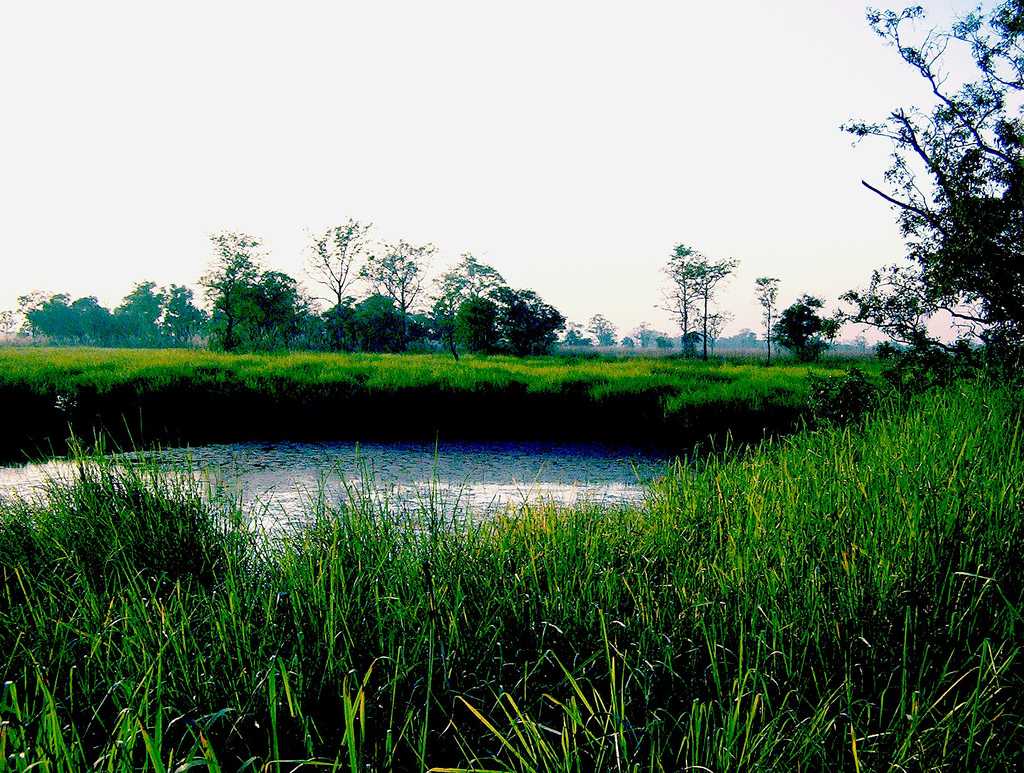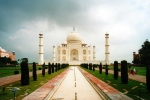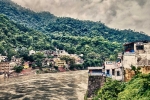Dudhwa National Park Tourism
Heritage, Religious, National Parks,
Ideal Duration : 1 day
Best Time : December to April
Dudhwa National Park Tourism
Nestled in the Lakhimpur-Kheri District ofUttar Pradeshon Indo-Nepal border, Dudhwa National Park is all about wildlife, nature and diversity and is a perfect getaway for nature buffs and wildlife lovers.
The place inhabits plethora of rare and endangered species including Tiger, Hispid hare, Swamp deer, Bengal Florican and Leopard etc. Dudhwa Tiger Reserve is one of the finest tiger reserves where one can also witness the spellbinding herds of Barasingha in the grassy wetlands. The place is not only home to animals but also varied species of birds nearing 400 that will leave you enchanted. From bulbuls, kingfishers and woodpeckers to owls, barbets, orioles and bee eaters, the place is home to several exotic and migratory birds. With stupefying diversity, this incredible natural abode for birds and animals will be nothing short of bewitching experience.The national park do have their own arrangements for safari, however you can hire jeeps or mini buses from outside to explore the wilderness and diversity of the area. Elephant ride is another option where elephant mahouts also act as your tour guide.
Download Dudhwa National Park PDF Guide >
What's Great?
A picturesque site. Full of adventures.
What's not so Great?
Does not have a proper facility for food. Can be dangerous without a proper guide.
For Whom
The Dudhwa National Park is a favoured destination for conservationists, shutterbugs and nature lovers from all over the globe. An additional attraction is a varying terrain which adds charm to the region.
Billy's Paradise
Dudhwa National Park is the only National Park in North India with a unique terai-bhabar terrain. A result of Billy Arjan Singh's hard efforts, Dudhwa has emerged as one of the most vibrant wildlife reserves in the country. The mysterious sal forests interspersed by water bodies are home to several species of deer especially the Barasingha deer, a fairly large population of tigers, one-horned rhinoceros, several other species of mammals and a myriad of birds, making the park a must-visit for bird lovers.Dudhwa plays a pivotal role in maintaining an ecological balance in the region and is a living example of the irreplaceable contributions of nature in the modernised world. A visit to the Dudhwa National Park is thus adventurous as well as a treat to the mind and soul.
Safari in Dudhwa National Park
The Dudhwa National Park Safari is a popular tourist attraction. The Park is open from 15th November to 15th June every year, however, it is best to visit between November and April, as the months of May and June can get extremely hot. The park has daily jeep safaris in open 4WD safari vehicles, and it is usually arranged in 4x4 customized jeeps with a maximum of 6 people in one jeep. A guide and an equipped forest official would accompany each vehicle. There are also elephant safaris available, where the mahouts accompany as guides. The safari timings are between 7:00 AM to 10:00 AM and 1:00 PM to 5:00 PM every day. The entry fee to the park is INR 50 per individual, and vehicle entry fee is INR 100. For safaris, personal vehicles are not allowed and only registered vehicles or gipsies are permitted. For more information and booking requests, please visithttp://www.dudhwanationalpark.in/jeep-safari-dudhwa-national-park.php http://www.dudhwanationalpark.in/dudhwa-tariff.php.
Flora
Located in the fertile Indo-Gangetic plains along the Indo-Nepal border, the Dudhwa National Park is rich in biodiversity. It was initially established as a wildlife sanctuary for swamp deer in 1958, and later converted to a national park, and also a tiger reserve. The sweeping alluvial plains of the area falls under the Terai ecosystem and has a wide variety of trees, most notably the sal trees. It is also known for other flora such as jamun, gular, shisham etc. and the park has large grassland as well as wetland areas. There are also many streams, creeks and lakes flowing through the park.
Wildlife
Mainly known for its tigers and swamp deer, most notably the rare Barasingha species of swamp deer, the Dudhwa National Park is also home to a variety of other wildlife animals. These include the hispid hare, Indian rhinoceros, sloth bear and leopards, among others. Some of these species - such as the Indian rhinoceros and leopards, were reared and introduced into the forests from nearby places like Assam and Nepal, and their populations have grown and thrived since then. The park also has a rich diversity of bird population, with over 350 species of birds. These include the painted storks, Bengal florican, woodpeckers, bulbuls, kingfishers, bee-eaters, egrets and hornbills, among others. The rare white-rumped vulture has also been spotted here. The park is mainly known for its aquatic avian fauna including the likes of swamp francolin, and different varieties of ducks, geese and storks. The park is thus a particular favourite for bird-watchers.
History
Spread across a sweeping 811 sq km expanse across the Indo-Gangetic plains along the Nepal border in the state of Uttar Pradesh, the Dudhwa National Park was first established in 1985. It was initially a wildlife sanctuary for swamp deer. Following the efforts of the famous hunter turned conservationist Billy Arjan Singh, the area was renamed as a national park in 1977. Singh was also responsible for re-introducing certain species of tigers and leopards back into the forest. The park became a part of Project Tiger in 1987 and was declared as a tiger reserve, and along with the Kishanpur Wildlife Sanctuary and the Katarniaghat Wildlife Sanctuary, it is called as the Dudhwa Tiger Reserve.
Tharu Tribal Village
A small village located in Dudhwa national park, meeting people of Tharu tribe will give you an opportunity to view the wonderful diversity of our country.
You will be fascinated to witness their unique cultures and ethnicity they follow. Enriched with rich culture and full of vibrancy, this tribes are mostly farmers and shepherds.
One Day Itinerary
Day 1 -Start from Paila Kalan. Check into Dudhwa Forest Lodge. Enjoy bird watching in the area.Day 2 -Start off early morning with an elephant ride through the dense forests. Enjoy an evening jeep safari and explore the grasslands more closely.Day 3 -Indulge in a game drive to the foothills of Dudhwa and enjoy the beauty of the forests from a height. Visit a Tharu village.
Restaurants and Local Food in Dudhwa National Park
Apart from eating at the hotel or guest house you are staying at, a canteen in the administer office is a good option. It serves simple vegetarian which is quite good. However, it is advisable to carry the food and water along with you while visiting the park.
Dec-Apris the best time to visit Dudhwa National Park
December to April are the best months to enjoy a visit to Dudhwa National Park. Dudhwa follows the typical north Indian weather pattern with extreme kind of climate. The summers are quite hot with the temperature rising up to 40 degrees Celcius. During winters (mid October-mid March), the weather is cool and pleasant hovering between 20-30 degrees Celcius. Do carry woollens for the winter season. However, the park is open for a fixed number of months in a year i.e. from 15th November-15th June.
Weather in Dudhwa National Park
Loading...
Dudhwa National Park in Summer (March - June)
Summers in Dudhwa are extremely hot and humid with temperatures soaring as high as 20 degrees Celcius. The high temperature in summer proves very uncomfortable for tourists.
Dudhwa National Park in Monsoon (June - October)
The monsoon rains bring back the forests to life after the scorching summers. This is also the breeding season for most of the animals inhabiting the region. So, the forest is closed during this season.
Dudhwa National Park in Winter (November - February)
Winters in Dudhwa can be pretty chilly with temperature ranging between 20 - 30 degrees Celcius. This is the best time to explore the forests and experience the natural beauty of the region.
Monthly Weather in Dudhwa National Park
Month
Avg. Minimum (°C)
Avg. Maximum (°C)
January
7
22
February
10
27
March
14
33
April
20
40
May
22
41
June
25
41
July
25
34
August
24
34
September
23
34
October
19
34
November
12
29
December
9
22
Comments on Dudhwa National Park
Post Your Comment


 Nainital
Nainital Agra
Agra Auli
Auli Rishikesh
Rishikesh Almora
Almora Bhimtal
Bhimtal